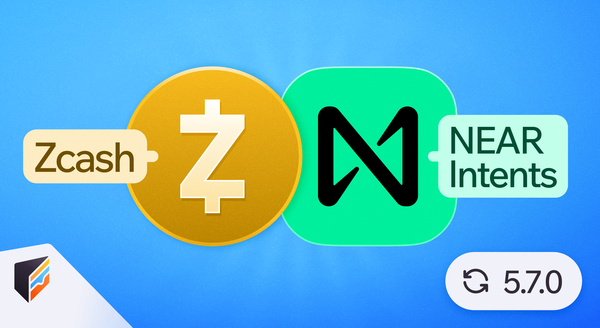Google Is Killing Open Source Android While GrapheneOS Fights for Digital Freedom
The most important mobile security project you've likely never heard of is under attack not from hackers or governments, but from Google itself. GrapheneOS just revealed how Big Tech is systematically dismantling open source Android while their lead developer fights a war.

In a series of posts that read like a digital dystopia thriller, the GrapheneOS team detailed a perfect storm of crises: their lead developer forcibly conscripted into military service, Google systematically dismantling the Android Open Source Project (AOSP), and a coordinated effort to lock independent developers out of the mobile security game entirely.
The GrapheneOS revelation starts with something that sounds almost absurd: one of their two senior developers has been "forcibly detained and conscripted to participate in a war." The team had to revoke the developer's repository access as a security precaution when they first went missing, not knowing if this was a targeted attack on the project.
Think about that for a moment. A project that provides essential privacy infrastructure for people living under authoritarian regimes had to consider whether their developer's disappearance was related to their work building tools that governments hate. That's the level of importance we're talking about here.
GrapheneOS carefully avoided specifying which country or conflict to "avoid involving GrapheneOS in a debate on forced conscription in an existential defensive war." But the mere fact that a mobile security project has to navigate geopolitical conflicts speaks to how critical this technology has become.
The developer who built 90% of GrapheneOS's Android ports over several years is now carrying a rifle instead of writing code. And Google chose this exact moment to make their lives exponentially harder.
While GrapheneOS dealt with their personnel crisis, Google was quietly executing what amounts to a controlled demolition of open source Android. In April, GrapheneOS received leaked information that Google was planning to "strip down the Android Open Source Project," starting with removing device support in Android 16.
The implications are staggering. AOSP has been the foundation that allowed projects like GrapheneOS to exist providing the source code necessary to build secure, privacy-focused alternatives to Google's surveillance-laden Android. Without AOSP device support, independent developers are effectively locked out of the mobile ecosystem.
Google released Android 16 on June 10th with exactly the changes GrapheneOS had been warned about. No device support. No easy path for independent developers. Just another step toward a completely closed ecosystem where Google controls every aspect of your mobile experience.
Google's public statement claiming "AOSP is not being discontinued" should be taken with a mountain of salt. As GrapheneOS notes, Google made similar public statements recently "followed by discontinuing significant parts of AOSP on June 10." Classic corporate doublespeak: technically not lying while practically destroying the thing they claim to support.
To understand why this matters, you need to understand what GrapheneOS actually does. This isn't just another custom ROM for Android enthusiasts. GrapheneOS is hardened mobile security infrastructure that provides:
Real privacy protection - Unlike stock Android, GrapheneOS doesn't phone home to Google with your every digital breath. No location tracking, no app usage monitoring, no behavioral profiling.
Journalist-grade security - Major news organizations rely on GrapheneOS devices for source protection. When your sources' lives depend on your phone's security, you can't trust consumer-grade privacy theater.
Activist protection - Human rights organizations worldwide use GrapheneOS to protect themselves and the people they serve from government surveillance and corporate data harvesting.
Executive security - High-value targets in business and politics use GrapheneOS because they understand that consumer smartphones are fundamentally compromised surveillance devices.
The user base isn't huge in absolute numbers, but it's incredibly high-value: people whose work literally depends on having a mobile device they can trust. Journalists investigating corruption, activists organizing resistance, executives handling sensitive business information, and ordinary citizens who refuse to accept digital surveillance as the price of modern life.
Google's systematic destruction of AOSP has forced GrapheneOS to consider something they probably never wanted to do: building their own hardware.
The team estimates it would cost "millions of dollars" to work with OEMs to create devices that meet their hardware security requirements. That's a massive undertaking for a project that survives on donations and community support.
But here's the thing: they'll probably succeed. The GrapheneOS community is deeply committed and understands what's at stake. When the choice is between having secure hardware or having no secure mobile options at all, millions of dollars starts looking reasonable.
Projects like System76 have proven that there's a market for privacy-focused hardware. Framework has shown that modular, repairable devices can compete with Big Tech. GrapheneOS already has the software stack and the community trust they just need the funding to make it happen.
The GrapheneOS situation is a microcosm of a much larger problem: Big Tech's systematic war against open source software.
We're watching the same playbook deployed across the industry:
- Google killing AOSP while claiming to support open source
- Apple's increasingly locked-down ecosystem with no alternatives
- Microsoft's "embrace, extend, extinguish" approach to open source projects
- Meta's open source AI models that come with restrictive commercial licenses
The pattern is always the same: use open source to build market dominance, then close the ecosystem once you control it. The justification is always "security" or "user experience," but the result is always the same: eliminating alternatives and forcing users into surveillance capitalism.
GrapheneOS represents everything these companies fear: proof that you don't need to trade privacy for functionality, that independent developers can build better security than trillion-dollar corporations, and that users will choose freedom when given a real alternative.
Despite everything working against them, GrapheneOS is still shipping. They completed their initial Android 16 port in under two days with one developer conscripted and Google actively sabotaging their work. That's the kind of technical excellence that survives corporate warfare.
They're hiring experienced Android developers and can pay anywhere in the world via traditional banking, Bitcoin, Ethereum, or Monero. They need people who can "hit the ground running" given the current crisis, but they have substantial funds available for the right candidates.
More importantly, they're preparing for a future where Google's Pixel devices may not support alternative operating systems at all. The conversations with OEMs about custom hardware aren't theoretical they're planning for a world where independence requires complete vertical integration.
The GrapheneOS community will fund this transition because they understand what's at stake. When the choice is between digital freedom and digital feudalism, the funding appears.
The GrapheneOS story isn't just about one privacy-focused Android distribution. It's about whether independent developers will have any role in the future of mobile technology, whether users will have any real choices about their digital privacy, and whether open source software can survive Big Tech's systematic campaign to eliminate alternatives.
Google's dismantling of AOSP while GrapheneOS fights to survive developer conscription reads like dystopian fiction, but it's happening right now. The question isn't whether Big Tech wants to control every aspect of your digital life that's already obvious. The question is whether projects like GrapheneOS can build alternatives fast enough to matter.
Based on what we've seen from the GrapheneOS team, they're going to fight this battle with or without Google's cooperation. They've already proven they can build better security than trillion-dollar corporations. Now they just need to prove they can build better hardware too.
The digital freedom movement has rarely had such clear battle lines. On one side: Google's surveillance capitalism and closed-source control. On the other: GrapheneOS's open source privacy and user agency.
Choose your side accordingly.








